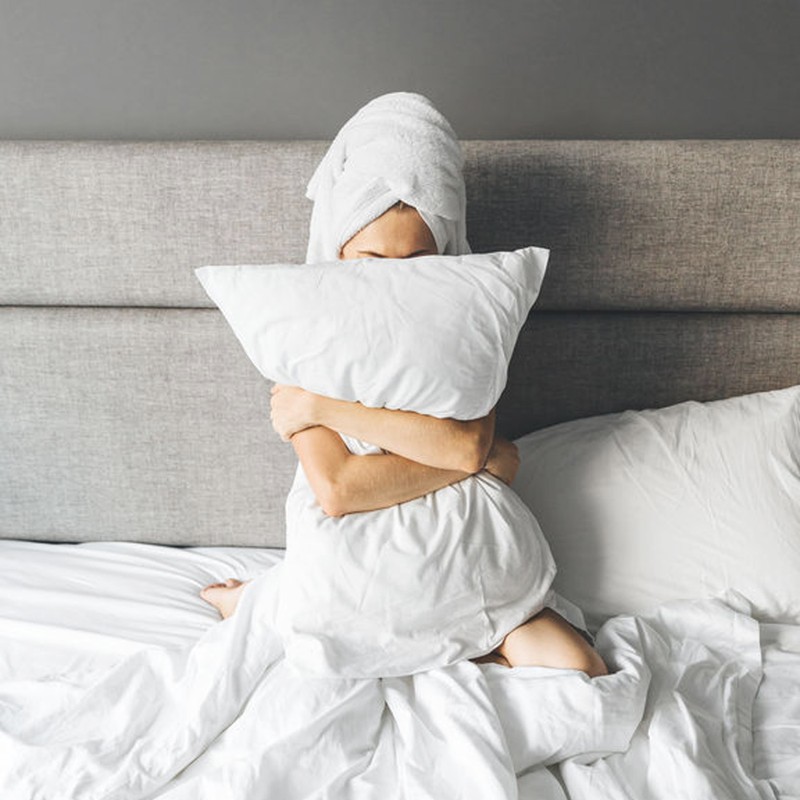Do You Have Social Jetlag?
Social jetlag is a term that explains the kind of feeling we get as a consequence of forcing our bodies to exist in two different time zones – the one that we abide by for work and social obligations, and one that follows your body’s natural circadian rhythm (AKA, your internal clock that runs in the background of your brain, and cycles between sleepiness and alertness at regular intervals).
The term was coined by Till Roenneberg, a professor of chronobiology at Ludwig-Maximilian University in Munich, whose study revealed this sleep discrepancy. The phenomenon is called ‘social jetlag’ because its side effects really do mirror jet lag: “The behaviour looks like if most people on a Friday evening fly from Paris to New York or Los Angeles to Tokyo and on Monday they fly back,” Dr Roenneberg said.
Social jetlag affects around two-thirds of the population, and more research into the subject has revealed people who tend to have a schedule of getting up later, and going to bed in the early hours at the weekend, often suffer from lower mood, sleep dysfunction, weight gain and chronic illness than those who maintain the same sleeping pattern all through the week.
Erin Berman, sleep and wellness expert at Nectar Sleep explains: “One of the biggest causes of this discrepancy is a seemingly harmless weekend lie-in. Coupled with an abrupt early start during the week, this is a harsh juxtaposition for the body clock and not dissimilar to a binge diet.” This is because weekends aren’t something that have always existed – the two-day weekend only came into regularity in the 20th century – and so disrupting our sleep pattern at the weekend isn’t something that we’re biologically prepared for.
With the health repercussions of social jetlag laid bare in Roenneberg’s study, how can we counteract the effects of social jetlag? Berman says there are fundamental components to a good night’s sleep, such as duration, environment and pre-bedtime activities. Plus, getting rid of that snooze button on your phone is key. “As tempting as it may seem to snuggle back beneath the covers, you will actually sleep better that night if you limit any lie in to an hour or less. One way to combat this is to try and jump in the shower within the first few minutes of waking up, to get you feeling fresh and energised and reduce the chance of your heading back to the land of nod.”
Of course, waking up at the same time every day will also help massively. Frank Scheer, a professor at Harvard Medical School said he has virtually no social jetlag thanks to consistent early morning wake-ups from his kids. Scheer also says you should increase your exposure to natural sunlight as much as you can in the early morning, whilst also decreasing our exposure to light, such as our phone or laptop screens, at night. Roenneberg says if you work in an office, it’s also advisable to try and sit near a window – our bodies evolved to be awake when it’s light and asleep when it’s dark, and dim offices will confuse that cycle. Essentially, more regulated hours are the key to keeping social jetlag at bay, so it’s time to wave goodbye to those Saturday morning lie-ins.
Ways to combat your social jetlag include:
- Try to wake and go to bed at the same time each day as much as possible.
- Don't snooze your alarm, get up as soon as it goes off.
- Have a shower within the first few minutes of waking,
- Increase your exposure to natural sunlight as much as you can in the early morning.
- Decrease your exposure to light, such as phones or laptop screens, at night.
- At work, try to sit by a window.
DISCLAIMER: We endeavour to always credit the correct original source of every image we use. If you think a credit may be incorrect, please contact us at info@sheerluxe.com.


